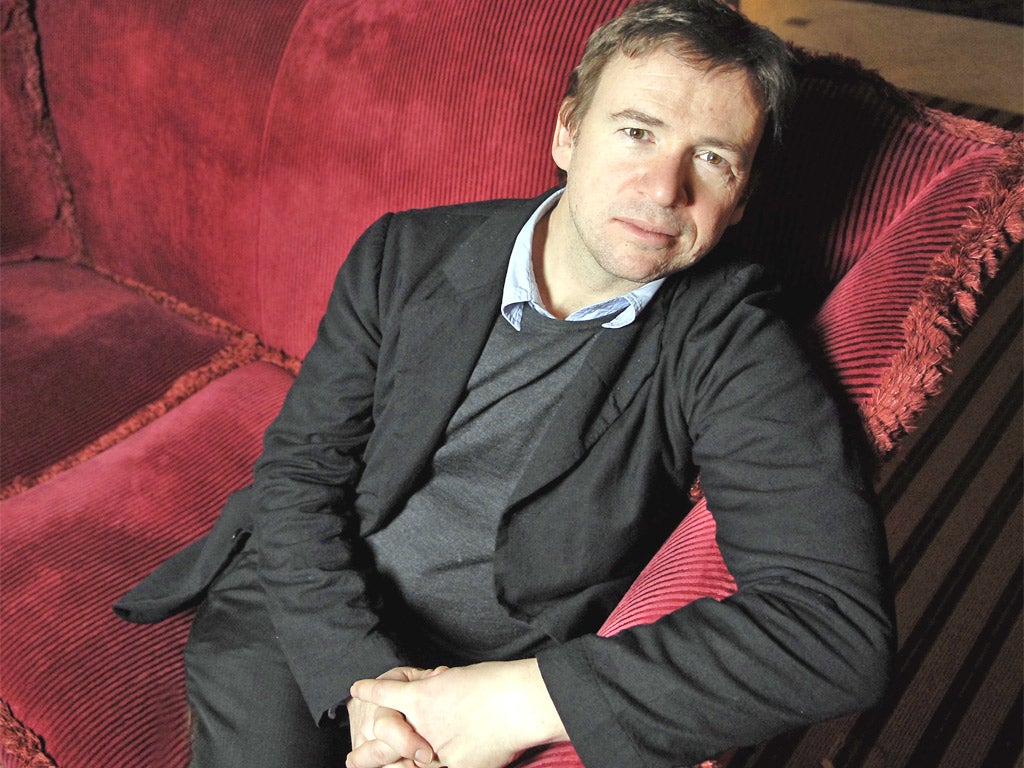'I'm desperate that the next book shouldn't disappoint people'
One Day author David Nicholls talks about adaptations, aging characters and having a tough act to follow

It's death to think about a perceived demographic when you write a novel. With One Day, I just wrote the book that I wanted to write; I didn't think "I might have to expand on this section to appeal to men" or anything like that. I was anxious that it might only make sense to people aged between 38 and 44, who lived in London and had been to university or had certain political and cultural experiences. Thankfully that turned out not to be the case.
Most of the books and films I love walk a knife edge between romance and cynicism, and I wanted One Day to stay on that line. I wanted it to be moving, but without being manipulative. I wanted it to be quite a big emotional book, funny and sad. That can be quite a nerve-racking thing to strive for. You don't want to tip into mawkishness or be unamusing when you're trying to be funny.
One Day has quite a following among 17, 18 and 19-year-olds, which is interesting and unexpected. It obviously sums up people's anxieties about the future: their intentions and idealism. I think a connection with people's own lives is important [in a hit novel]. It's not necessary; some of the most successful books at the moment are fantastical and otherwordly. But the fact that people connected One Day very specifically to their own friendships, relationships, regrets and anxieties about getting older was important.
I've only ever been recognised in the street once. In Sweden, strangely. There's no photograph of me in the book. And as an actor I was uniquely bland and unmemorable.
I'm desperate that the next book shouldn't disappoint people, but there's an expectation that it might not be so well-read, that critics might be a little harsher, that anything that sells less than One Day might be perceived as disappointing. To sit down in the morning and for those to be the first thoughts in your head can make it difficult to write.
The only thing I know about the next book is that it won't be a love story set over 20 years. It may have a romantic element but it won't be primarily a romantic comedy. I'm 45 now and I have a family, so first dates and the awkwardness of relationships in your 20s are quite distant to me. I'm interested in mothers and daughters, fathers and sons.
I suppose Dexter is still running his delicatessen. I think he's probably quite happy now. He's the same age as me, so he's probably putting on a little weight and worrying about that. I love the characters in One Day, and it's hard to shake them off. I still have a slight fear that every line of dialogue I write will sound like Emma or Dexter.
If there's anything I'm keen to get better at, then it's writing prose as opposed to writing dialogue. I sit down and read Alice Monro or F. Scott Fitzgerald and I'm in awe of the quality and precision of the prose. I'm much more confident improvising page after page of chat.
I usually write on a computer – unless I get stuck, at which point I switch to writing by hand. I think that's common among writers if they get cornered on something. I think there's something more organic and instinctive about writing by hand. It sounds fanciful, but it certainly helped with One Day at times.
If I was thinking of a novel as the pitch for a movie, then I wouldn't write a novel set over 20 years, or set in a British university. They aren't very commercial notions. But, having started as a professional writer in television, I probably think in terms of scenes: where to come into a scene, and where to end a scene. I tend to structure things before I write them. A lot of novelists improvise, and I'm quite envious of that ability. I think if I tried it I'd end up throwing away rather a lot.
[In the film version of Starter For Ten,] James McAvoy was a lot more charming and appealing than the Brian I had in my head, who was a bit of a whiner. My characters have a different life and presence in my head to those of the actors in the films. Any actor brings their own personality to it. I sat and lived with those books day after day for years, so the book version does take precedence in my head.
It's much easier to edit someone else's work than your own. Over the last few years, I've written screenplays for Great Expectations, Far From the Madding Crowd and Tender is the Night, which are three of my favourite books. The process can be painful: you're aware that you're losing things you love, and that readers love. A movie can never be a book read aloud, it will always be a précis. But I think I'm quite reverent. Sometimes I wonder if I'm too reverent. My adaptation of Great Expectations is being filmed now (with Ralph Fiennes and Helena Bonham Carter) and is pretty faithful. We've condensed some action but there are very few scenes in it that aren't in the book. Adapting is much more akin to editing than it is to writing, and I think for that reason I probably won't do any more adaptations for a while. I need to come up with something of my own instead.
Interview by Tim Walker,'One Day' is released on Blu-ray and DVD on 6 February
Join our commenting forum
Join thought-provoking conversations, follow other Independent readers and see their replies
Comments
Bookmark popover
Removed from bookmarks